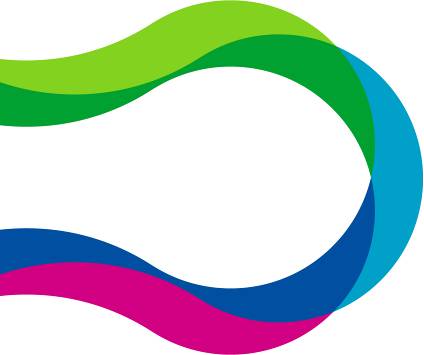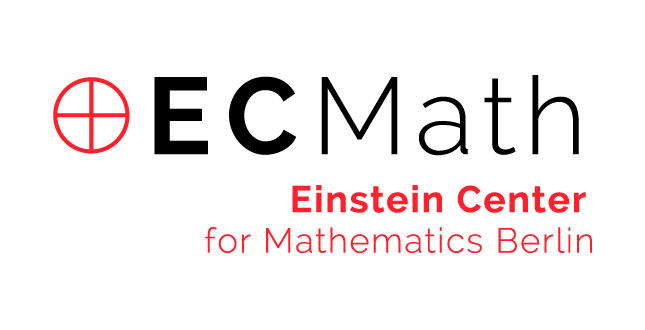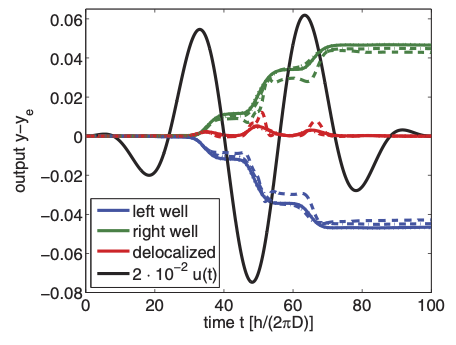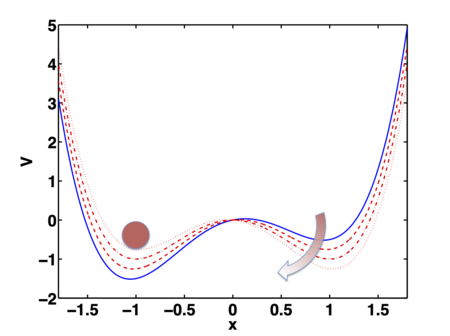
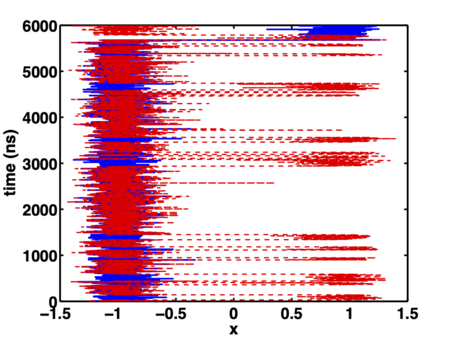
Our research is on the interface between computational probability and dynamical systems. It includes the multiscale analysis of complex systems, stochastic control theory, and the stochastic simulation of high-dimensional differential equations that appear in science and engineering applications.
Agent-Based Modeling of Co-Evolving Opinion and Social Dynamics in Online Media (EF45-1)
Summary: Although model for opinion dynamics and consesus formation qualitatively reproduce real-world phenomena like the emergence of opinion polarization, or echo chambers, their assumptions and outcomes are still quite far from being empirically adequate since an appropriate data-based approach for empirical validation is still missing. By extending traditional bounded confidence models of opinion dynamics, we propose a new mathematical model for complex co-evolution of opinion and social dynamics. Our model will rely on empirical, time-dependent social network data (from Twitter) that is coupled to a stochastic opinion dynamics model for a large, but finite number of interacting agents. Once the model’s outcomes of social- and individual-opinion correlations are empirically validated, it can be used to achieve a better understanding of how polarization and echo-chambers are created and to provide empirical underpinning on how people shape their opinions in their online social space to assess the risk of possible mechanism for manipulations by automated bots.
Project heads: Carsten Hartmann, Nataša Djurdjevac Conrad (Zuse-Institut Berlin), Ana Djurdjevac (FU Berlin), Christof Schütte (Zuse-Institut Berlin, FU Berlin), Carsten Hartmann (BTU), Philipp Lorenz-Spreen (MPI f. Bildungsforschung)
Researcher: Sebastian Zimper
Duration: 04/2023 - 03/2026
Optimal Control of Stochastic Modified Equations for the Efficient Parametrisation of Deep Neural Networks (Project EF4-6)
Summary: This project is devoted to the systematic development of stochastic differential equation (SDE) approximations for momentum enriched stochastic gradient schemes for deep neural networks and corresponding numerical algorithms. Specifically, we want to study the underdamped Langevin model that can be understood as the SDE counterpart of momentum enriched optimisation schemes.
Project heads: Carsten Hartmann, Tobias Breiten (TU Berlin)
Researcher: Siragan Gailus, Omar Kebiri
Duration: 01/2020 - 12/2022
Diffusion in dynamically crowded cells: stochastic models from spatiotemporal motion data (Project EF4-4)
Summary: Diffusion in cellular environments, consisting of a variety of interacting entities, is a multiscale process. The project’s objective is to infer effective stochastic models and to quantify memory, using novel stochastic modelling and data assimilation techniques, based on data from experiments and simulations.
Project heads: Carsten Hartmann, Felix Höfling (FU Berlin)
Researcher: Upanshu Sharma
Duration: 01/2019 - 12/2021
Probing scales in equilibrated systems by optimal nonequilibrium forcing (Project A05)
Summary: This project is devoted to the analysis and simulation of rare statistical fluctuations in multiscale random dynamical systems beyond equilibrium that are driven by external forcing. Stochastic control theory is a key methodology in the project, specifically, we exploit an intimate duality between the cumulant generating functions of certain path functionals and entropy minimisation where the latter is interpreted within the framework of stochastic control theory. As a result we obtain a variational principle that determines a probability measure that we use to obtain precise importance sampling estimates of the quantities under consideration.
Project heads: Carsten Hartmann, Christof Schütte (FU Berlin), Marcus Weber (Zuse Institute Berlin)
Researchers: Ilya Klebanov, Lara Neureither, Lorenz Richter, Alexander Sikorski
Duration: 10/2014 - 05/2022
Origin of the scaling cascades in protein dynamics (Project B05)
Summary: The molecular dynamics of proteins and peptides is a hierarchical process which involves characteristic time scales ranging from 10-12 seconds to 100 seconds. Although the physical models of the local intramolecular interactions are relatively well developed, and molecular dynamics simulations have proven successful in recovering the dynamics of large-scale biomolecular systems, a mathematical understanding of how local interactions in the molecular root model give rise to a cascade of processes on different time scales is still lacking.
In this project we will investigate how these scaling cascades arise from the physical models of molecular dynamics and develop mathematical tools for their analysis.
Project heads: Carsten Hartmann, Karsten Heyne (FU Berlin), Petra Imhof (FAU Erlangen), Bettina Keller (FU Berlin)
Researchers: Hossein Batebi, Luca Donati, Irtaza Hassan, Lara Neureither, Wei Zhang
Duration: 10/2014 - 05/2018
Particles in lipid bilayers (Associated Project AP01)
Summary: The interplay of proteins and curvature of lipid bilayers is well-known to regulate cell morphology and a variety of cellular functions, such as traf.cking or signal detection. Here, interplay not only means that proteins can induce curvature by shaping and remodeling the membrane, but also that the membrane curvature plays an active role in creating functional membrane domains and organizing membrane proteins, including their conformation dynamics.
The goal of the project is to derive a hierarchy of discrete-continuum models of protein-membrane interactions and corresponding numerical algorithms, providing a seamless transition from molecular to macroscopic scales. In particular, we aim at derivations and multiscale extensions of existing purely phenomenological macroscopic models.
Project heads: Carsten Gräser (FU Berlin), Carsten Hartmann, Ralf Kornhuber (FU Berlin)
Researchers: Tobias Kies, Maren-Wanda Wolf
Duration: 10/2014 - 05/2018

Verbundprojekt DiTriMo, Teilprojekt 2: Spieltheorie-basierte Modellvereinfachung
Zusammenfassung: Der digitale Drilling erweitert das Konzept „digitaler Zwilling“ um interaktive, modell-gestützte Diskussionen im Decision Theatre Format. Am Beispiel „nachhaltige Mobilität“ entwickelt das Verbundprojekt detaillierte agenten-basierte Modelle für Berlin und eine ländliche Region in der Lausitz, sowie daten- und spieltheoriebasierte Modellvereinfachungen, die in Echtzeit angepasst werden können. Die Modelle werden im Dialog mit EntscheidungsträgerInnen aus der Praxis erprobt, um das Potential des digitalen Drillings für gesellschaftliche Herausforderungen auszuloten. Das vorliegende Teilvorhaben entwickelt hierfür empirisch fundierte agenten-basierte Modelle (ABM), die Mobilitätsentscheidungen von Personen modellieren. Dabei wird die Bevölkerung einer Region durch eine synthetische Population dargestellt. Die modellierten Agenten treffen ihre Mobilitätsentscheidungen auf Basis verschiedener Faktoren (wie beispielweise Verfügbarkeit, Komfort, Kosten), die wiederum durch Politikmaßnahmen oder andere Entwicklungen auf der Makroebene beeinflusst werden können. Dafür sollen zwischen MATSim und MoTMo Modell Resultate und Parameter ausgetauscht werden, um die regionalen Mobilitäts-ABM zu erstellen. Beide Regionen sind mit unterschiedlichen verkehrlichen Herausforderungen verbunden. Die Metropolregion Berlin ist hier stellvertretend gewählt, um zu untersuchen, wie der anhaltende Trend der Urbanisierung verkehrlich zu organisieren sein könnte. Die Lausitz hingegen ist eine ländliche Region, die einen Strukturwandel durchläuft. Für beide Regionstypen gibt es Möglichkeiten, den Verkehr weitgehend CO2-frei zu organisieren. Die Decision Theatres (DTs) sollen genutzt werden, um diese Möglichkeiten zu diskutieren, und möglichst tragfähige Lösungspakete zu identifizieren.
Projektleitung: Carsten Hartmann, Sarah Wolf (FU Berlin), Kai Nagel (TU Berlin), Christof Schütte (Zuse-Institut Berlin, FU Berlin)
Laufzeit: 11/2022-10/2025
Förderkennzeichen: 05M22ICA
Scientific Computing Lab @ EIZ
Zusammenfassung: Als Brücke zwischen Wissenschaft und Wirtschaft entwickeln im Energie-Innovationszentrum (EIZ) über 70 Wissenschaftler*innen der BTU Cottbus-Senftenberg gemeinsam mit einem interdisziplinären Partnernetzwerk innovative Lösungen und Technologien für eine klimaneutrale Energieversorgung in der Lausitz und weltweit.
Das EIZ besteht aus sechs vernetzten Laboren (Labs) mit eigenen thematischen Schwerpunkten: Control Systems and Cyber Security, Energy Economics, Energy Storage and Conversion, High Power Grid Converter, Electric Power Systems und Scientific Computing. Mit 14 Professuren der BTU Cottbus-Senftenberg sowie über 40 weiteren Partnern aus Wirtschaft und Wissenschaft ist das EIZ optimal für interdisziplinäre Forschung aufgestellt.
Das Scientific Computing Lab (SC Lab) bündelt verschiedene an der BTU vorhandene Kompetenzen im Bereich des wissenschaftlichen Rechnens sowie der mathematischen Modellierung und Optimierung komplexer Systeme. Hauptziele und Aufgabengebiete des SC Labs sind Methoden- und Softwareentwicklungen in den Bereichen:
- Stochastische Mehrskalen- und Multiphysics-Modelle
- Effiziente Optimierungsmethoden für komplexe Netzwerke
- Co- und Echtzeitsimulation von Multi-Energiesystemen
Daneben steht das SC Lab den Einrichtungen des EIZ beratend und ausführend in allen Bereichen von der Modellbildung, der Datenanalyse und dem High-Performance Computing bis hin zur Modellvalidierung und Prognose sowie der Dokumentation und Archivierung von Simulationsdaten zur Seite.
Projektleitung SC Lab: Carsten Hartmann, Ekkehard, Köhler, Heiko Schmidt
Förderung: Dieses Projekt ist gefördert durch den Bund aus Mitteln des Investitionsgesetz Kohleregionen.
Robuste stochastische Modellierung komplexer getriebener Systeme (Teilprojekt TP2)
Graduiertenklasse: Das thematische Cluster hat das Ziel, stochastische Methoden aus der Mathematik für die Modellierung, Simulation und Optimierung von Strömungs- und Transportvorgängen zu untersuchen. Letztere sind fächerübergreifend im Hinblick auf die Schwerpunktthemen Energie und Umwelt an der BTU von fundamentaler Bedeutung. So sind etwa die Aerosolabscheidung in der Bioenergietechnik (LS Mechanische Verfahrenstechnik), die stochastische Turbulenzmodellierung (LS Numerische Strömungs- und Gasdynamik), geophysikalische und technische Strömungen (LS Aerodynamik und Strömungslehre) oder die Lärmanalyse (LS Technische Akustik) einige Beispiele für ingenieurwissenschaftliche Forschungsthemen, bei denen sich die BTU auf nationaler und internationaler Bühne bereits profilieren konnte.
Teilprojekt TP2 (Zusammenfassung): Ziel des Projekts ist es, stochastische Modellierungsansätze für komplexe, zeitabhängige Systeme mit Unsicherheiten in den Modellparametern oder den Eingangsgrößen zu entwickeln und in Verbindung mit intermittierenden Turbulenzphänomenen zu untersuchen. Der generische Ausdruck „komplexe Systeme“ bezeichnet dabei eine Klasse hochdimensionaler dynamischer Systeme, die sich durch eine Vielzahl verschiedener Zeit- oder Längenskalen auszeichnen, oft ohne eindeutige Skalentrennung. Typische Beispiele sind globale Zirkulationsmodelle für Wetter- oder Klimavorhersagen oder biomolekulare Systeme. Ein Ziel der Analysis solcher komplexen Systeme ist die Herleitung effektiver, vereinfachter Modelle für vorgegebene Observablen aus einem komplexen, mikroskopischen Basismodell. Die Vorteile des vereinfachten Modells gegenüber dem Basismodell reichen von seiner einfacheren Interpretierbarkeit, bis hin zur höheren Regularität von Lösungen und der vergleichsweise einfachen numerischen Diskretisierung.
Projektleitung: Carsten Hartmann
Mitarbeiter: Markus Strehlau, Lara Neureither
Laufzeit: seit 10/2016

Maschinelles Lernen für den 3D Druck von metallischen Bauteilen (StaF-EFRE)
Zusammenfassung: Gegenstand dieses Projekt ist die Erforschung Maschineller Lernprozesse für die Additive Fertigung. Wenn es gelingt, das für die Bauteilausleung und zum Betrieb additiver Fertigungsanlagen notwendige Wissen durch maschinelles Lernen an den Forschungsstellen zu entwickeln, können die Ergebnisse in Transferprojekten weiterentwickelt werden und den Klein- und Kleinstbetrieben der Region einen Einstieg in die additive Fertigung ermöglichen. Ein erster Schlüsselaspekt beinhaltet die Qualitätsanalyse der Druckerzeugnisse. Hierzu sind Schnitte aus gedruckten Materialien zu untersuchen und mit Hilfe von Methoden des maschinellen Lernens in einen Qualitätssicherungsprozess zu übersetzen, der wichtige Rückschlüsse auf die Einstellparameter des Druckprozesses ermöglicht. Der zweite Schlüsselaspekt betrifft die Kontrolle des Fertigungsprozesses selbst, wobei die verschiedenen auftretenden Materialphasen metallischer Werkstoffe sowie die Wärmeverteilung während des Druckprozesses mit Hilfe von Methoden des maschinellen Lernens von physikalischen Prozessen effizient prognostiziert werden sollen. Hierzu soll zum einen die ansonsten äußerst aufwändige Simulation von Phasenübergängen durch ein maschinell gelerntes Modell ersetzt werden, zum anderen soll zu einem Satz von elementaren Bausteinen möglicher Werkstückgeometrien ein effizientes Modell der Wärmeausbreitung maschinell gelernt werden. Der dritte und letzte Schlüsselaspekt betrifft die Leichtbaukonstruktion von Bauteilen Hierzu sollen die mit Hilfe von diskreten Optimierungsverfahren modellierten Geometrien mit den in diesem Bereich üblichen Finite-Elemente- Berechnungen ergänzt werden, was insgesamt in ein neues, effizient und einfach einzusetzendes Optimierungstool mit maschinell gelernten Koeffizienten münden soll.
Projektleitung: Markus Bambach (BTU CS und ETH Zürich), Michael Breuß, Armin Fügenschuh, Carsten Hartmann
Laufzeit: 01/2020-12/2021
Summary: E-CAM will create, develop and sustain a European infrastructure for computational science applied to simulation and modelling of materials and of biological processes of industrial and societal importance. Building on the already significant network of 15 CECAM centres across Europe and the PRACE initiative, it will create a distributed, sustainable centre for simulation and modelling at and across the atomic, molecular and continuum scales.
The ambitious goals of E-CAM will be achieved through three complementary instruments:
1. development, testing, maintenance, and dissemination of robust software modules targeted at end-user needs;
2. advanced training of current and future academic and industrial researchers able to exploit these capabilities;
3. multidisciplinary, coordinated, top-level applied consultancy to industrial end-users (both large multinationals and SMEs).
The creation and development of this infrastructure will also impact academic research by creating a training opportunity for over 300 researchers in computational science as applied to their domain expertise.
Project heads (WP 3 "Quantum dynamics", WP 4 "Meso- and Multiscale modelling"): Sara Bonella (U Roma "La Sapienza" and EPF Lausanne), Luigi Delle Site (FU Berlin), Carsten Hartmann
Researcher: Christian Krekeler (FU Berlin)
Duration: 10/2015 - 09/2020
Optimal control of chemical reaction systems and application to drug resistance mitigating therapy (Project CH4)
Summary: Development and spread of drug resistant microorganisms is a major health issue which, accompanied by an attrition in drug development, is expected to worsen in the near future. Drug resistance development in the individual is driven by drug intrinsically stochastic events like mutation, selection, growth and extinction of microbial strains (to name a few) in a drug-exposed, infected person. The chemical master equation (CME) provides a formalism to accurately model these processes. A major mathematical drawback is the fact that the CME cannot be solved directly due to its numerical complexity. To overcome the curse of dimensionality, we develop a hybrid control framework, which enables to use a feedback control framework whenever intrinsic stochasticity requires such, and an open-loop strategy in scenarios where the process is almost deterministic. Computational costs are drastically decreased in the hybrid framework, enabling to accurately model the process and to practically compute optimal controls.
In the media: “Wege auf der Resistenzfalle”(2015) FUndiert, “Im Einsatz gegen multiresistente Keime” (2015) idw-Informationsdienst Wissenschaft
Project heads: Carsten Hartmann, Max von Kleist (RKI and FU Berlin), Marcus Weber (Zuse Institute Berlin)
Researchers: Sulav Duval (FU Berlin), Wei Zhang (FU Berlin)
Duration: 06/2014 - 05/2017
Model order reduction for light-controlled nanocatalysis (Project SE 11)
Summary: Photocatalysis is a key application in the field of femtochemistry where chemical reaction dynamics is controlled by temporally shaped femtosecond laser pulses, with the target to promote specific product channels while suppressing competing undesired channels, e.g. pollutants. For catalytic systems, optimal shaping of laser pulses requires the iterated integration of the dissipative Liouville-von Neumann (LvN) equation for reduced quantum mechanical density matrices, which represents the computational bottleneck for theoretical modelling, as the size of the matrices grows quadratically with the number of quantum states involved. The aim of this project is to study model order reduction (MOR) and optimal control (OC) of LvN-based models to beat the curse of dimensionality in the simulation and control of photocatalytic processes.
The project aims at:
- Extending existing approaches to MOR from the linear to the bilinear case (required for LvN-based models)
- Developing, implementing and testing numerical methods for the solution of large-scale generalized Sylvester and Lyapunov equations
- Exploring structure preservation of MOR approaches
- Applying MOR approaches with optimal control of open quantum systems
- Identifying relevant photochemical benchmark systems to test various MOR / OC approaches
Project heads: Carsten Hartmann, Rupert Klein (FU Berlin, from 03/2016)
Researchers: Omar Kebiri, Burkhard Schmidt (FU Berlin)
Duration: 06/2014 - 05/2017
CECAM-DE-MMS Mathematics in Molecular Simulation
Overview: The Berlin CECAM node (CECAM-DE-MMS "Mathematics in Molecular Simulation") is located at the BTU Cottbus-Senftenberg, the Freie Universität Berlin and the Zuse Center in Berlin (ZIB). The main research activities of the node are in the direction of the application of mathematics to the molecular sciences, including biophysics and biochemistry. Our node activities involve special programmes for the support and education in applied mathematics and scientific computing.
Aims & Scope: Mathematics, in its form of numerical analysis or mathematical physics, plays nowadays a crucial role in the development of molecular simulation algorithms, above all those of multiscale character. This aspect is not yet fully recognized by the molecular simulation community, but it will be mandatory for the challenges of the future. The necessity of bridging simulation methods at various scales, leads to coupling strategies which must have a solid formal and numerical basis so that the basic physical principles are not violated and the validity of the simulation results can be assured. It is not rare (and actually happens too often) to find molecular simulation studies where right answers are obtained because of mutual cancellation of wrong reasons, rather than because of the correct and rigorous application of physical theories. Mathematics, in this sense, is not anymore a mere complementary presence, that, if can provide a theorem to make an algorithm rigorous is welcome, otherwise one can make it without. Instead, mathematics is a powerful systematic tool to avoid the blind use of simulation algorithms outside their range of numerical and physical validity. In the near future one of the main aim of the Mathematics in Molecular Simulation (MMS), CECAM node of Berlin , will be to substantially drag mathematics into the field of molecular simulation. We can expect that a massive presence of mathematical structure into the future development of algorithms will allow for a quantum jump in the algorithms' capability to address systems and phenomena that are at the moment prohibitive.
Visitors Programme: We have established a Visitors Program to encourage those interested to interact with us.
Affiliated Groups and Institutes (FU Berlin and BTU Cottbus-Senftenberg):
Multiscale Molecular Simulations (Luigi Delle Site)
Stochastik und ihre Anwendungen (Carsten Hartmann)
Biocomputing (Christof Schütte)
Computational Molecular Biology Group (Frank Noé)
Computational Statistical & Biological Physics (Felix Höfling)




